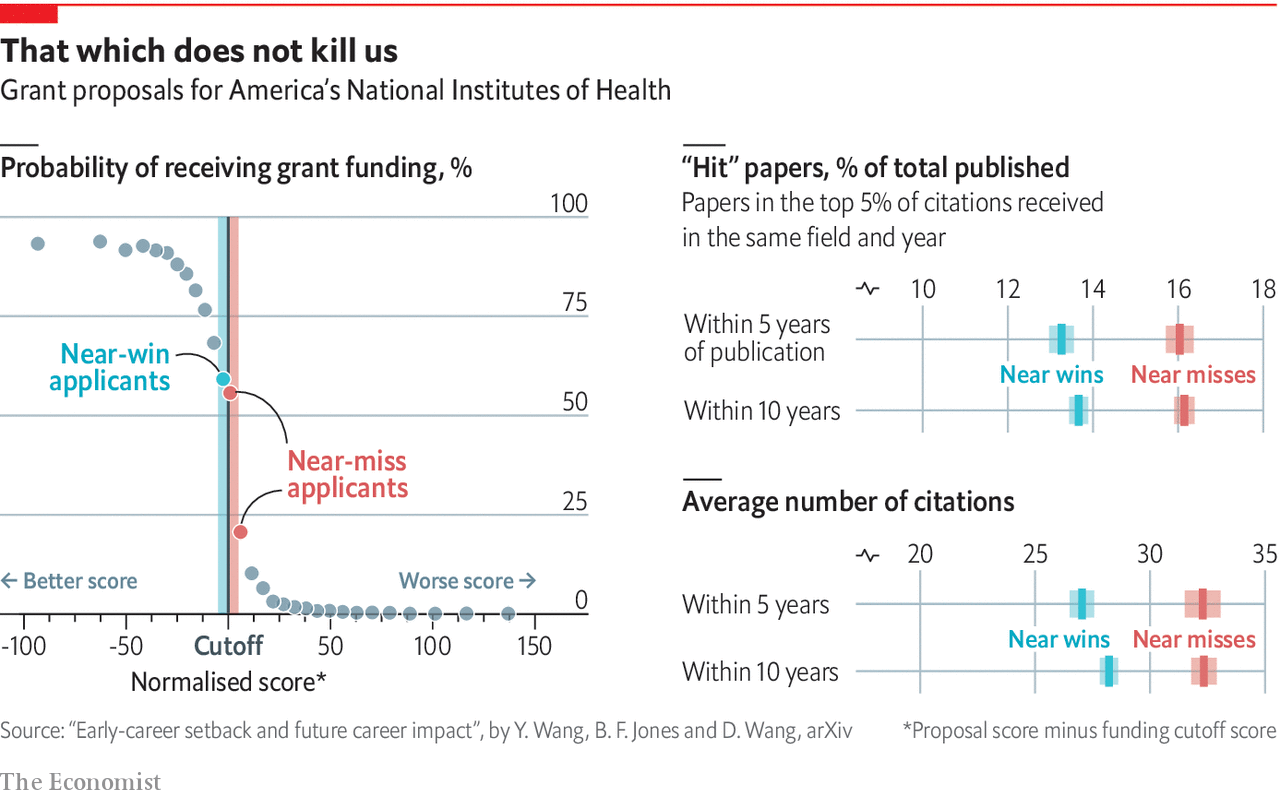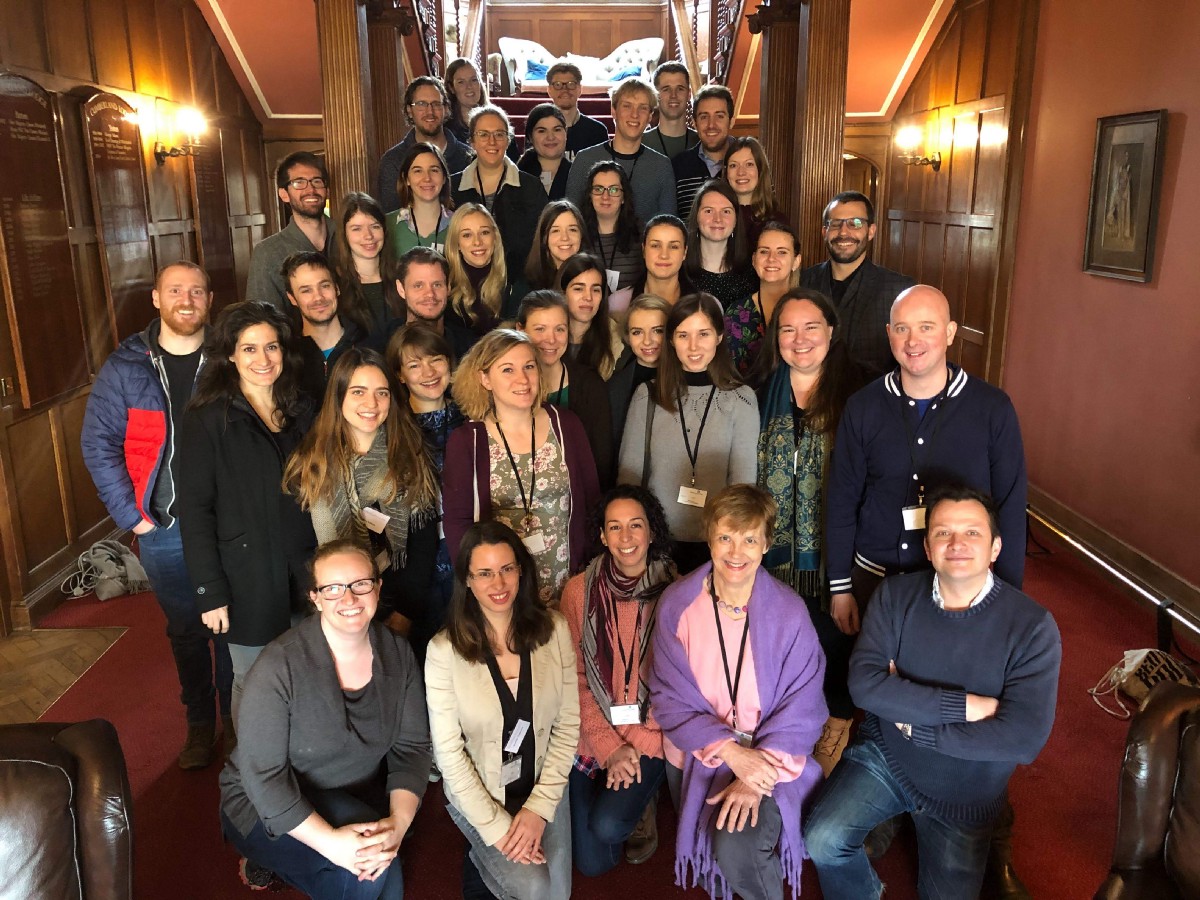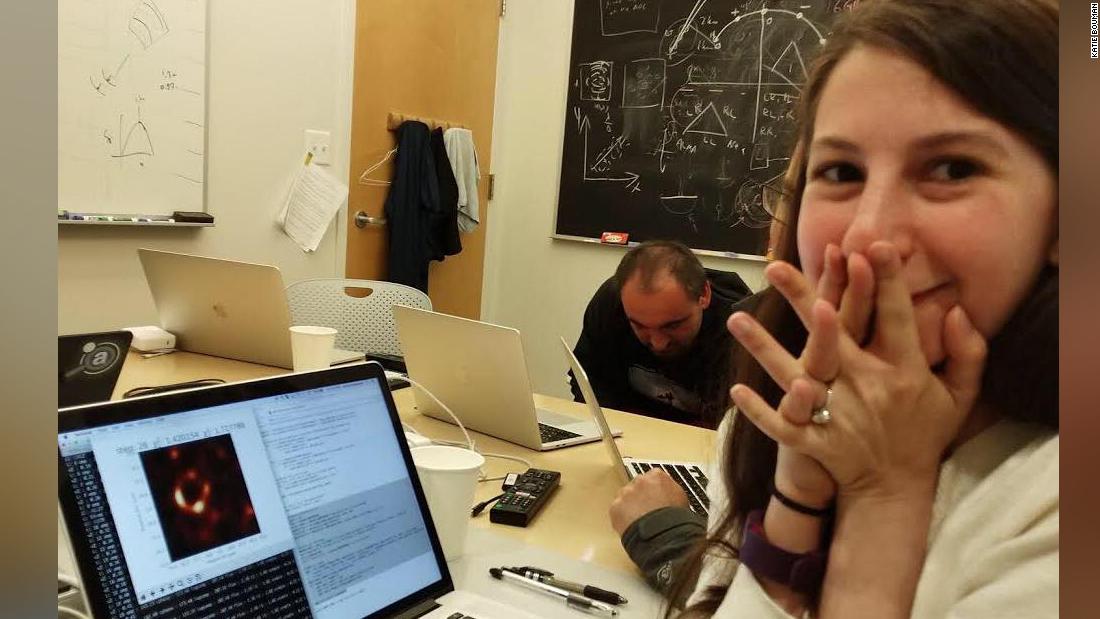Ensure Sustainable Researcher Careers!
MCAA and Eurodoc call on research institutions, funding bodies and governments to ensure sustainable researcher careers in a joint declaration.

Send us a link
MCAA and Eurodoc call on research institutions, funding bodies and governments to ensure sustainable researcher careers in a joint declaration.

An infographic showing the prevalence of mental health problems in PhD students. It also gives information on how one can overcome these problems.

The first international meeting on postgraduate mental health was an important step, but much more is needed to solve academia's crisis.

Our Taken for Granted columnist discusses a new report about the practice-and recommendations for reform.

New study of computer scientists says that when it comes to research output, where Ph.D.s get hired matters more than where they trained.
New research says early failure in the sciences may be beneficial in the long run.

Advice for early-career researchers from a negotiation expert.

As an early career researcher (ECR), making the transition from the “traditional” way of doing science into methods that are more open, reproducible, and replicable can be a daunting prospect. We know something needs to change about our workflow, but where do we start?

The effort wouldn't have succeeded without Katie Bouman, who developed a crucial algorithm and helped devise imaging methods.

Nature Human Behaviour and the Behavioural and Social Sciences Community invite researchers across all career stages and disciplines to share their thoughts on publishing while training for a PhD. A broad selection of submissions will be published as World Views in Nature Human Behaviour or will be posted on the Behavioural and Social Sciences community page. Send us a short presubmission enquiry now!

The eLife Early-Career Advisory Group open applications for researchers who wish to join the second edition of the community advocacy programme.
The mental health crisis extends into the ways counseling and psychological services are provided and into the intrinsic nature of graduate education.

The data in this report summarises the responses gathered from 365 principle investigators of academic laboratories, who started their independent positions in the UK within the last 6 years up to 2018. We find that too many new investigators express frustration and poor optimism for the future. These data also reveal, that many of these individuals lack the support required to make a successful transition to independence and that simple measures could be put in place by both funders and universities in order to better support these early career researchers. We use these data to make both recommendations of good practice and for changes to policies that would make significant improvements to those currently finding independence challenging. We find that some new investigators face significant obstacles when building momentum and hiring a research team. In particular, access to PhD students. We also find some important areas such as starting salaries where significant gender differences persist, which cannot be explained by seniority. Our data also underlines the importance of support networks, within and outside the department, and the positive influence of good mentorship through this difficult career stage.
Five junior researchers share their thoughts on travel barriers.

Gender and Precarious Research Careers aims to advance the debate on the process of precarisation in higher education and its gendered effects, and springs from a three-year research project across institutions in seven European countries. Examining gender asymmetries in academic and research organisations, this insightful volume focuses particularly on early careers. It centres both on STEM disciplines (Science, Technology, Engineering and Mathematics) and SSH (Social Science and Humanities) fields.
Universities are at long last undertaking efforts to collect and disseminate information about student career outcomes, after decades of calls to action. Organizations such as Rescuing Biomedical Research and Future of Research brought this issue to the forefront of graduate education, and the second Future of Biomedical Graduate and Postdoctoral Training conference (FOBGAPT2) featured the collection of career outcomes data in its final recommendations, published in this journal (Hitchcock et al., 2017). More recently, 26 institutions assembled as the Coalition for Next Generation Life Science, committing to ongoing collection and dissemination of career data for both graduate and postdoc alumni. A few individual institutions have shared snapshots of the data in peer-reviewed publications (Mathur et al., 2018; Silva, des Jarlais, Lindstaedt, Rotman, Watkins, 2016) and on websites. As more and more institutions take up this call to action, they will now be looking for tools, protocols, and best practices for ongoing career outcomes data collection, management, and dissemination. Here, we describe UCSF's experiences in conducting a retrospective study, and in institutionalizing a methodology for annual data collection and dissemination. We describe and share all tools we have developed, and we provide calculations of the time and resources required to accomplish both retrospective studies and annual updates. We also include broader recommendations for implementation at your own institutions, increasing the feasibility of this endeavor.
The community-curated website aims to connect early-career researchers with funding opportunities, useful resources and each other.
Seemingly owned by an Oxbridge Essays shareholder, company offers up to 100,000 words of 'model writing assistance'.

Mentorship in academia facilitates personal growth through pairing trainees with mentors who can share insight and expertise.Expertise can be purely academic, on work‐life balance, personal branding and networking, or general career advice. Mentoring has been shown to be beneficial for mentees, both in terms of objective research productivity and subjective outcomes. Several institutions/organizations have formal in‐person mentoring programs that pair early‐ to mid‐career researchers with mentors who are not their direct supervisors. With global integration in science, however, geographical proximity between mentors and mentees is relevant to a lesser degree.
Women researchers are underrepresented in almost all research fields. There are disciplinary differences in the phase in which they tend to quit their academic career: in the natural and technical sciences (STEM), it is in the postdoctoral phase, whereas in the social sciences and humanities (SSH) it is during the doctoral phase.

The potential costs for early-career researchers in adopting practices to improve reproducibility as well as ways in which they can nontheless achieve their career goals.

If you're looking to move labs, countries or sectors this year, or seeking general career inspiration, here's some advice from five researchers who featured in Nature Careers in 2018.

In the 21st Century, research is increasingly data- and computation-driven. Researchers, funders, and the larger community today emphasize the traits of openness and reproducibility. In March 2017, 13 mostly early-career research leaders who are building their careers around these traits came together with ten university leaders (presidents, vice presidents, and vice provosts), representatives from four funding agencies, and eleven organizers and other stakeholders in an NIH- and NSF-funded one-day, invitation-only workshop titled “Imagining Tomorrow’s University.” Workshop attendees were charged with launching a new dialog around open research – the current status, opportunities for advancement, and challenges that limit sharing.
The workshop examined how the internet-enabled research world has changed, and how universities need to change to adapt commensurately, aiming to understand how universities can and should make themselves competitive and attract the best students, staff, and faculty in this new world. During the workshop, the participants re-imagined scholarship, education, and institutions for an open, networked era, to uncover new opportunities for universities to create value and serve society. They expressed the results of these deliberations as a set of 22 principles of tomorrow's university across six areas: credit and attribution, communities, outreach and engagement, education, preservation and reproducibility, and technologies.
The way institutions conceptualise doctoral candidates - as individuals without baggage, able to devote all their time to their research - has very real consequences for those who do not fit this profile.
